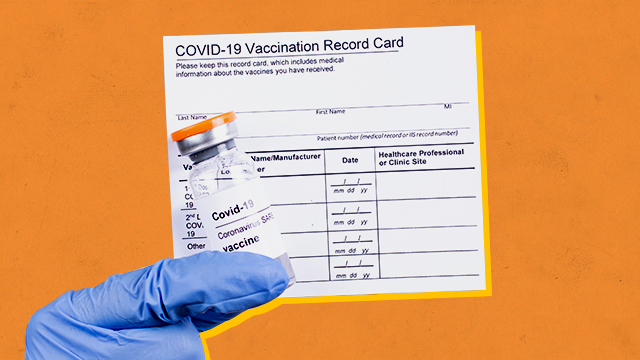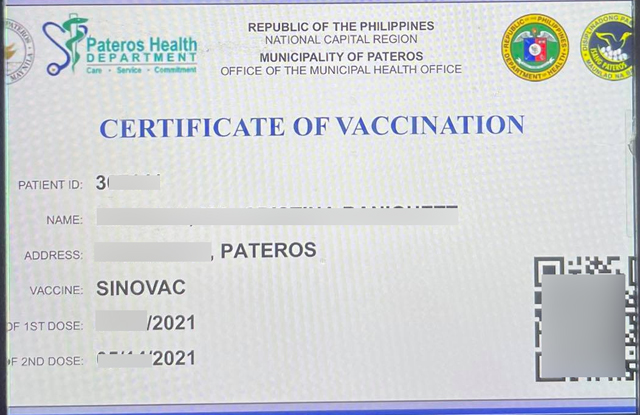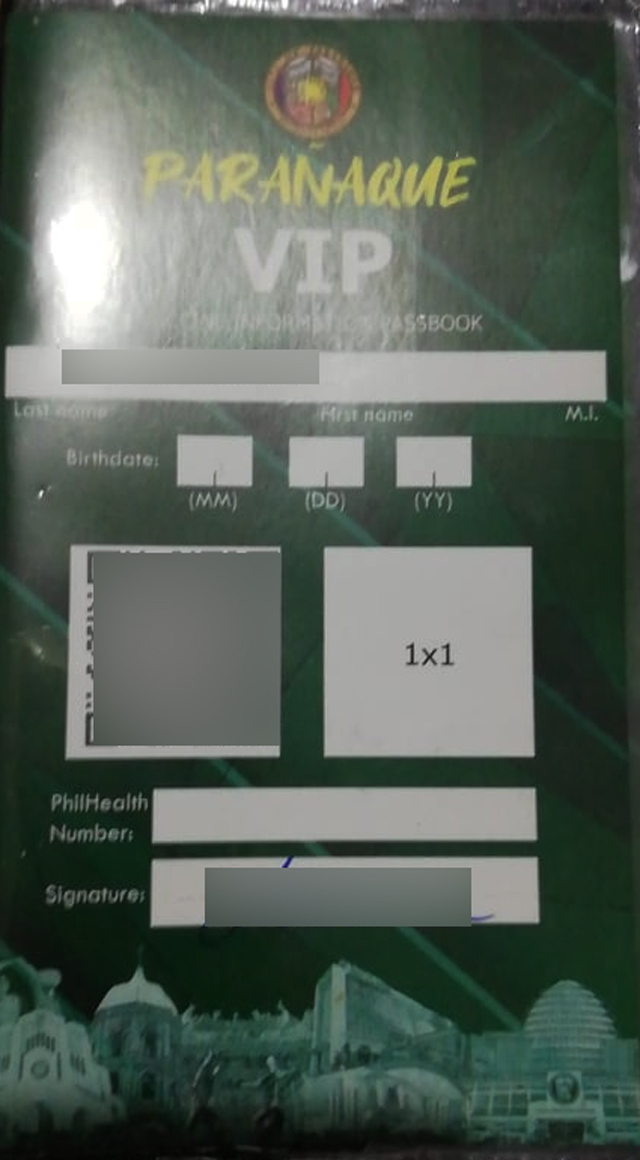
(SPOT.ph) When the Inter-Agency Task Force announced on July 5 that local government units have the option of accepting COVID-19 vaccination cards as a travel requirement, it appeared that the lack of a centralized system for vaccination could be a problem. Different cities have different cards, and the local government unit's (LGU) database of vaccinated residents are not linked to one another. There are also reports on travelers faking RT-PCR tests, so how can we be sure that vaccination cards won't be faked as well?
"May mga tanong mula sa aking mga kasamahan: paano mave-verify ang vaccination card? Hindi naman sophisticated ang vaccination card natin. Wala naman kaming alam na may security feature at validation process ito, or system para ma-check kung tama or peke ito, those are the things that we need to operationalize bago maging in effect ang direktiba," Quirino Governor Dakila Cua said on July 7 following the national government's announcement.
As a response to these doubts, a couple of cities in Metro Manila have looked into enforcing added security features into their COVID vaccine cards:
Quezon City
[twitter:https://twitter.com/ABSCBNNews/status/1413401089924243456]
Quezon City started affixing "tamper-proof security seals" on vaccination cards of local residents and workers following their second doses on July 9. The hologram seals are also countersigned by authorized representative of the LGU's Task Force Vax to Normal.
For fully vaccinated individuals who received their second doses before July 9, the LGU is implementing a staggered distribution of the security seal. Those who completed their doses in the month of April can proceed to the Century Hall of the Quezon City Memorial Circle from July 12 to 23. Schedules will also be set for those fully vaccinated in May and June.
"The tamper-proof security seal guarantees that vaccination cards presented for whatever purpose are genuine," Mayor Joy Belmonte said.
Makati City
Mayor Abigail “Abby” Binay said on July 9 that vaccination cards in Makati City have "a holographic sticker with a unique code that cannot be replicated or forged." She added that this becomes visible only under blue light. This is an added security measure aside from the unique QR code in every vaccination card that establishments and medical cities can scan to see a person's vaccination status.
Most of other cities have also long implemented QR codes in their respective vaccination cards for easier monitoring:
Taguig City
[facebook:https://ift.tt/3hZqPlR]
Taguig's vaccination card has a sticker with all the important details, such as an individual's full name, date of vaccination, vaccination site, and QR code. This makes the document hard to be replicated or faked.
Pateros

Pateros' vaccination cards don't have a QR code nor a sticker, but fully vaccinated individuals can request a Certificate of Vaccination from their LGU. This card, which can be secured by sending an e-mail to pateros.vacreg@gmail.com, has a unique QR code as well as a patient number and vaccination dates.
Parañaque City

Individuals who get vaccinated in Parañaque get a vaccination booklet, which has a QR code in front plus space for a 1x1 photo. Inside, there's plenty of space for other non-COVID vaccines in case they get vaccinated at their LGU's health center.
[ArticleReco:{"articles":["86749","86739","86751","86745"], "widget":"Hot Stories You Might Have Missed"}]
Hey, Spotters! Check us out on Viber to join our Community and subscribe to our Chatbot.
Source: Spot PH
No comments:
Post a Comment